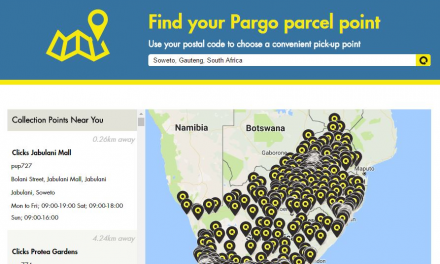
Can Ghana Post deliver the mail directly?
The government has forecast that Ghana Post, the country’s monopolistic mail distributor should be able to deliver mails directly to houses by the end of the year.
“Direct delivery is however impossible without proper street naming and house numbering across the country”, says Deputy Minister of Finance and Economic Planning Kwaku Agyeman Manu.
Manu who disclosed this at a forum on the 2005 budget organized by the Integrated Social Development Center (ISODEC) last Thursday said in a bid to make the identification of streets and houses easy, the government will embark on street naming and house numbering by June this year.
He said direct mail delivery could become a major source of employment for the youth and even pensioners, since the sorting, distribution and direct delivery of letters would require more hands.
At the moment the business of posting and receiving letters is restricted to the urban privileged, who own the few postal boxes in selected parts of the country. The majority of Ghanaians, especially those in rural areas who have no access to boxes are compelled to ‘c/o’ their letters to friends and relatives who have boxes. Sometimes, a letter is received in an urban area and given to another person to deliver at a village. Reports of lost and damaged letters; accusations and counter accusations have become the order of the day.
In some parts of the country, the post offices and their postmasters that were the source of pride for the people fizzled out. In the past, many post offices served as banks and carried out internal money transfers for almost all Ghanaians. How many Ghanaians of say 35 years and above can say they never received telegram messages from the post office or sent or received postal orders? No more. Today, the right to post and receive letters has become the preserve of urban dwellers. If rural people no longer have access to post offices, it is better not to mention Internet facilities.
But in the west, post offices remain a part and parcel of the people’s lives. In Britain for instance, rural people still have a special attachment to their post offices and are proud to walk there and transact all sorts of businesses, including payment of utility bills, TV licence, payment for drivers licence and indeed every bill that has to be paid into government coffers can be done through the post office.
Quite recently Royal Mail, the UK’s national postal service provider launched a scheme to use its network of 15,500 offices to sell a suite of financial insurance policies. The Royal Mail now writes two million pounds worth of motor policies every year. It has also provided 40 million pounds worth of loans and is readying itself to compete with British Telecom in the domestic telephone market.
In fact Royal Mail is a major source of part time employment for students and pensioners, especially during peak periods like Christmas and Easter, when more hands are needed to sort the millions of mails that pour in.
Can the same be said of Ghana Post? Perhaps, knowing that they enjoy monopoly in the industry, Ghana Post staff are some of the most irritating and apathetic public servants in Ghana. The stamp sellers in particular take delight in conversing with each other anytime the queues are long. And on days that the queues are unusually long, they close all the cages and leave one stamp seller at post.











